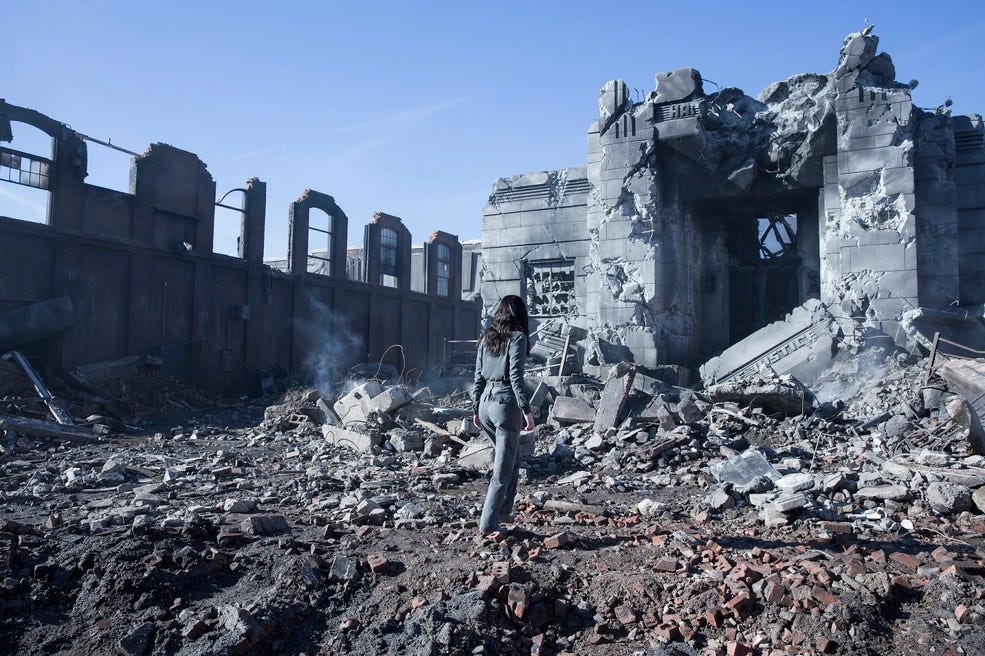Science fiction allows for political discourse and searing metaphors without the weight of our present reality. This becomes even more powerful in media about authoritarianism set in universes where good and evil aren’t easy to define. Here are two giant franchises with surprisingly nuanced views and painfully familiar imagery, with just enough hope to make them a cold comfort in these times.
Support independent Queer writing by becoming a paid member.
Andor (Disney+)
A Galactic Empire officer tries to rape an illegal worker during a raid on a farming planet. The Empire plans to annihilate a planet, using propaganda and force to trap its inhabitants in an open-air prison, while the galaxy helplessly watches. I still can’t believe such a timely piece of media is a Star Wars show on Disney+.
We tend to think of authoritarianism and resistance as black and white, thanks in part to media like the original Star Wars, which painted villains and heroes with easy brush strokes. But Andor, which takes place in the same universe, tells its story in shades of gray. It’s a show about the corners of big battles and the minutiae of fascism. The Star Wars brand means Andor will have longevity and stay relevant in the future, possibly more than Succession or White Lotus. Every episode is breathtaking, disturbing, and tragic, especially since we already know the ending (Andor is the prequel to the Rogue One film). One of the finest pieces of sci-fi media of the last 20 years. And it’s poetry that its reluctant hero is played by a Mexican immigrant.
Hunger Games 1-4
The 10-year-old blockbuster made a zillion dollars, but it somehow feels underrated, ahead of its time, and sadly outdated all at once. A brutal government live-streams its atrocities. A hospital bombing jump-starts a revolution. The murder of a group of children ends a war. After everything we’ve witnessed in the real world over the past two years, these plot points almost seem quaint. But The Hunger Games also deals with enduring themes: the power of propaganda, which is exploited by everyone in its world, the emotional damage of war, and the cyclical nature of human rights abuses.
There’s a reason The Hunger Games doesn’t have the cultural cachet of its contemporary franchise Harry Potter. Both are about authoritarianism, but whereas Harry Potter presents good and evil as a binary, The Hunger Games is more nuanced and bleak.
(Also: Julianne Moore and Philip Seymour Hoffman’s final reunion is worth the price of streaming.)
Keep reading with a 7-day free trial
Subscribe to Herrera Words to keep reading this post and get 7 days of free access to the full post archives.





